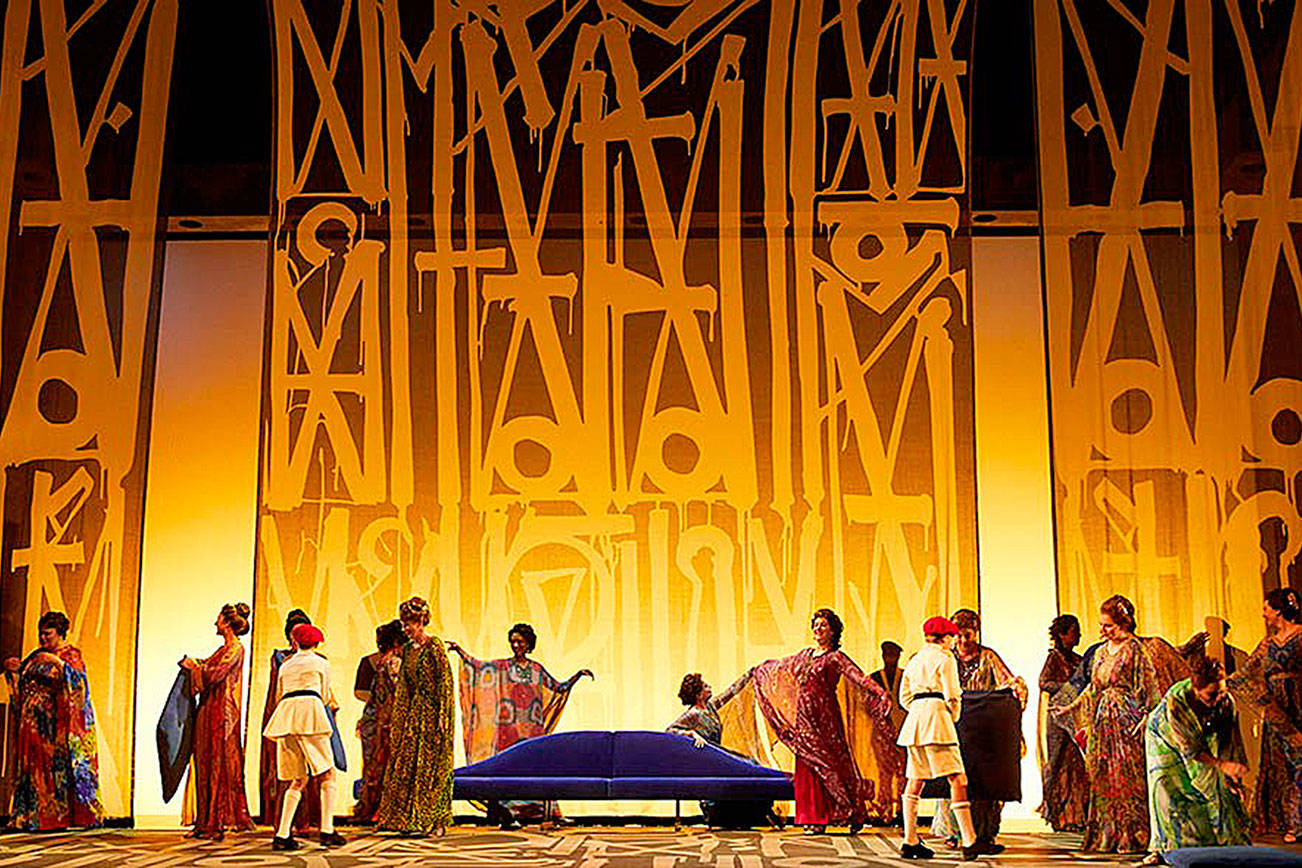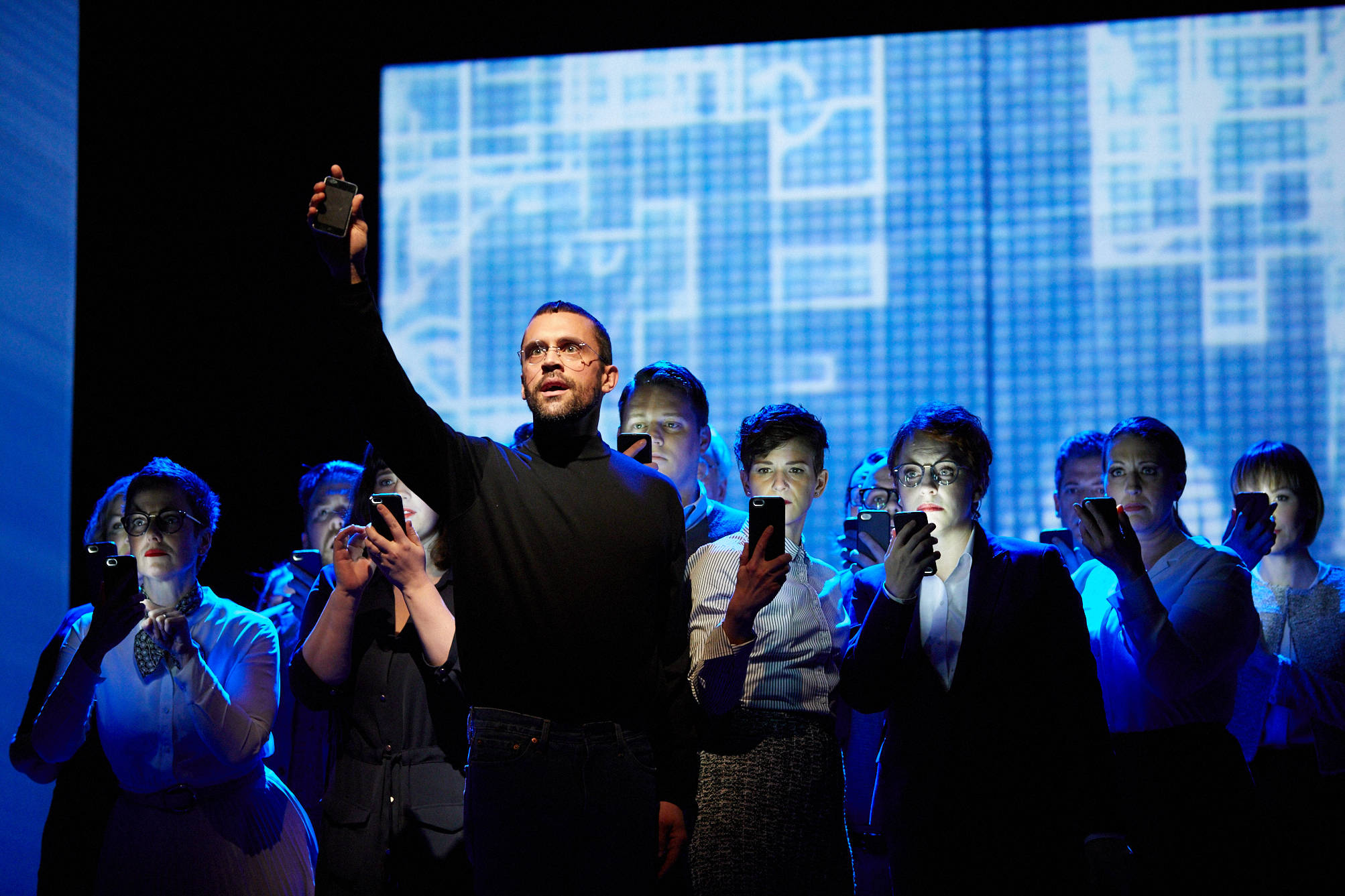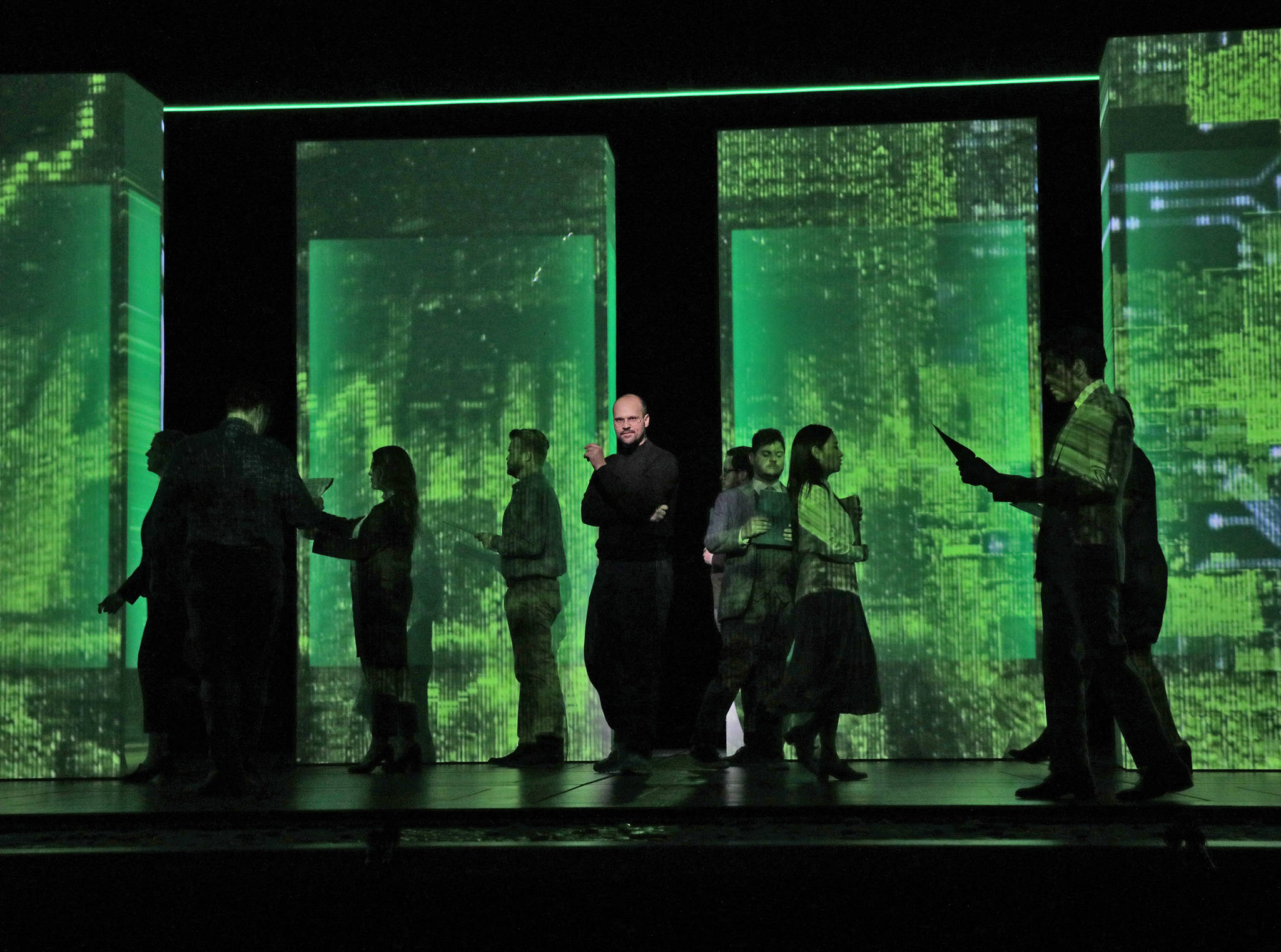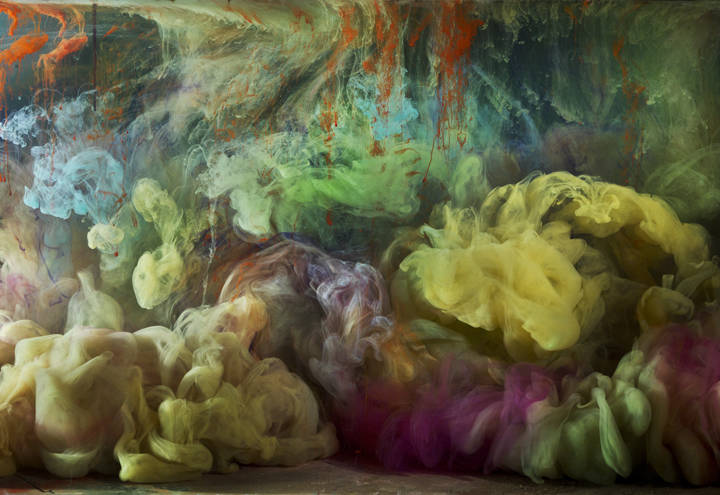Seattle Opera’s production of Verdi’s Aida, which opened Saturday, is a tale of cross-purposes in more ways than one. Just as the title character—a princess from a country at war with Egypt but who’s in love with the Egyptian general Radamès—is torn between love and patriotism, the production itself finds old battling new, each scoring hits and misses. A major selling point, rightly, has been the artistic design by the street artist RETNA, whose graphics evoke both graffiti and, in a nod to the opera’s setting, hieroglyphics. It gives this repertory favorite a fresh, contemporary look (if a somewhat cluttered one in Act 2’s triumphal scene). Anita Yavich’s costumes for the women’s chorus are a heady riot of color, and the two together combust like fireworks.
Yet other aspects of the production are ineffectively, even distractingly, un-contemporary. Dressing all the men in modern-day garb (in this case, military) under the assumption that this makes opera more relatable and thus less off-putting to the newcomer has been an opera cliché for years, long before the cautionary tales of SO’s recent La traviata and Cosi fan tutte, where the approach flopped. The staging, by the production’s original director, Francesca Zambello, and this revival’s stage director, E. Loren Meeker, is interest-free, as is Jessica Lang’s choreography—as conventional as can be. (Usually I’m a sucker for kids in opera, but I admit I missed the point of the skipping, leapfrogging white-clad boy cadets inserted into several scenes.)
Two standout cast members seem to play off operatic acting traditions from decades ago, but in this case taking inspiration from the past was exactly the way to go. Milijana Nikolic brings Amneris, the Egyptian princess also in love with Radamès, a regal mien (complete with tiara), casting sidelong glances like poison darts, swanning about, emoting grandly—and she’s magnificent. Hers is not a large voice (friends I attended with found her hard to hear, though this didn’t strike me as a particular problem), and it’s a bit rough in moments of tenderness; but in extremes of conflict and pathos she deploys it powerfully, especially in her despairing scene in Act 4 after Radamès is sentenced for treason. (Usually the takeaway from Aida is “Love Tragically Crushed by the Jackboot of the State,” yet now that America is run by an administration most of whom are working entirely for personal gain rather than the common good, you may look at this subtext differently.) As compelling as the other leads are, Nikolic makes the opera Amneris’ story.
Longtime SO veteran Gordon Hawkins does something similar as Amonasro, Aida’s father. Intimidating and fiery, he’s a wounded lion with a hint of madness in his eyes, dialing up the melodrama in Act 3 as he guilts his daughter into betraying her lover.
Opening night’s Aida, Leah Crocetto, let loose a soprano of impressive carrying power, yet worked up little emotional heat outside this scene with Amonasro. The discovery of the night was the Radamès, Brian Jagde, his voice bold, bright, and resonant, effortlessly hall-filling. A heroic Italian-style tenor to the marrow, he makes an ardent, boyish Radamès—and if he can deepen and darken his stage presence, he could be the Otello I’ve been waiting 24 seasons for Seattle Opera to find.
Aida
May 9, 11, 12, 13, 16, 18, & 19 | McCaw Hall | $49 and up








